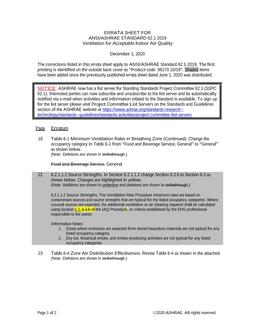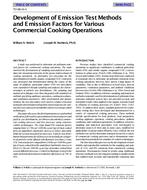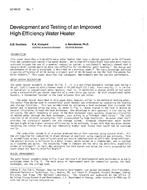As moisture-related problems increase in homes, the need for sensors to accurately measure the moisture level in the building envelope grows. Sensors are needed to assist in model verification, to indicate the effectiveness of moisture abatement steps, and to warn of potential moisture intrusion. The most popular sensors currently used by building scientists are those based on electrical resistance, but a great deal of dissatisfaction exists with this technique. Installation of these sensors is difficult, drift in the response causes transient changes in the measurements, and calibration has proven to be a challenge. Numerous techniques promise better accuracy and easier use than the electric resistance probes, but work is needed to produce a sensor small enough to fit unobtrusively in a wall cavity. This work has identified many existing techniques for measuring moisture and presents advantages and disadvantages of each.
Units: None
Citation: ASHRAE Transactions, vol. 109, pt. 1
Product Details
- Published:
- 2003
- Number of Pages:
- 11
- File Size:
- 1 file , 160 KB
- Product Code(s):
- D-16794


